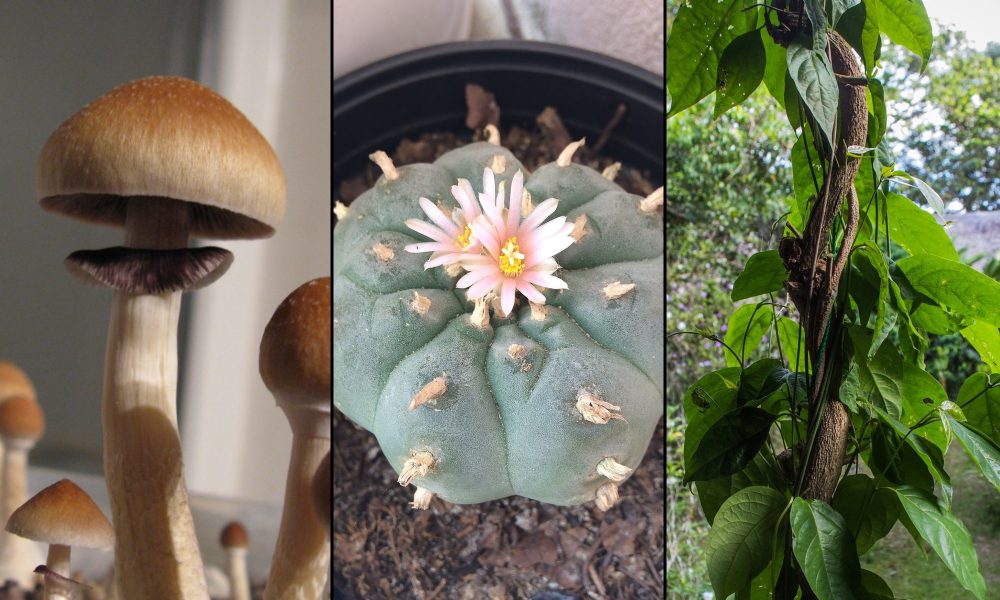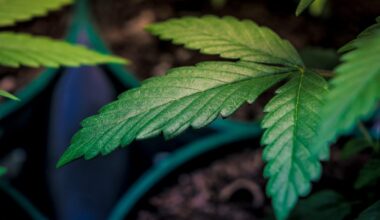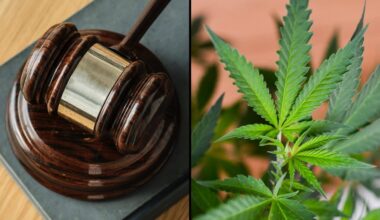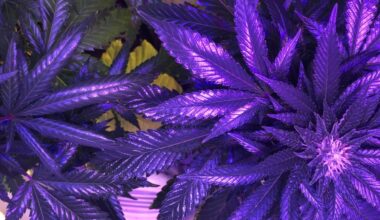With less than two months before Colorado voters decide on a historic ballot initiative to legalize psychedelics for adults, a coalition of activists in Aspen is collecting signatures for a local measure to decriminalize entheogenic substances like psilocybin, ayahuasca and ibogaine.
The Right to Heal initiative is the brainchild of a working group that was formed last year after the Aspen City Council met to discuss possible psychedelics reform before ultimately deciding that more research was needed.
While local lawmakers declined to take action, advocates drew lessons from other cities across the U.S. that have decriminalized psychedelics and created their own ballot measure that was certified for signature gathering earlier this year. Now they need to submit at least 925 valid signatures from registered voters by October 8 to qualify for the city’s March 2023 election, unless a special election is called before then.
Under the proposal, the possession or therapeutic use of natural plant medicine—including ayahuasca, ibogaine, DMT, mescaline, psilocybin and psilocin—by adults 21 and older would be made among the city’s lowest law enforcement priorities.
With certain exceptions, “no department, agency, board, commission, officer or employee of the city shall use any city resources to assist in the enforcement of laws imposing criminal penalties for the personal use and personal possession of plant medicines by adults,” the initiative says.
The text of the measure also expresses support for broader reform at the state level.
“The people of Aspen call upon the State of Colorado to cease enforcement and prosecution of any laws imposing criminal penalties for the therapeutic use of plant medicines by adults or for related paraphernalia as those terms are defined herein,” it says.
—
Marijuana Moment is tracking more than 1,500 cannabis, psychedelics and drug policy bills in state legislatures and Congress this year. Patreon supporters pledging at least $25/month get access to our interactive maps, charts and hearing calendar so they don’t miss any developments.![]()
Learn more about our marijuana bill tracker and become a supporter on Patreon to get access.
—
Additionally, the measure would create an advisory board intended to promote education about psychedelics, promote best practices for law enforcement and develop a report within six months that details “their findings and recommendations” the lawmakers.
Afterward, “the advisory committee shall study and track the outcomes of this article and shall publish its findings and recommendations every twelve (12) months.”
Martha Hammel, who is part of the Aspen coalition that’s pushing for this initiative, told Marijuana Moment in a phone interview on Monday that, if the statewide psychedelics legalization measure passes at the ballot in November, that would make their local reform “less necessary”—but she said she hopes voters approve the broader policy change.
But in the interim, she views the local work as complementary to the statewide push, emphasizing that the education that will go into the Aspen campaign will both raise attention to the statewide proposal and help better prepare the city for the further reaching policy change if it’s enacted.
Hammel didn’t say how many signatures they’ve collected for the Aspen initiative since being certified back in April, but she offered that she has “no doubt that we will be able to get all of our signature by October 8.” As The Aspen Times noted, ballot campaigns typically aim to collect more signatures than are needed because some will inevitably be dismissed as invalid.
This local effort is the latest iteration of a psychedelics reform movement that started in earnest in Denver in 2019, when voters approved a first-of-its-kind psilocybin decriminalization ballot measure.
The campaign manager of that initiative is also spearheading the statewide legalization initiative, titled the “Natural Medicine Health Act.” The measure would legalize possession of certain psychedelics, establish a therapeutic model for supervised psilocybin treatment and provide a pathway for record sealing for prior convictions.
A separate campaign that took issue with some of the prescribed regulations in the certified measure conceded earlier this month that their competing proposal was unlikely to succeed following a signature drive. The state later confirmed that the activists fell short of qualifying for ballot placement this month.
Here’s the state of play for other 2022 drug policy ballot initiatives across the country:
In North Dakota, voters will have the chance to decide on marijuana legalization at the ballot this November, the secretary of state’s office confirmed. Legalization will also appear on the ballot in neighboring South Dakota.
Last week, Oklahoma officials certified that activists have collected enough valid signatures to place a marijuana legalization initiative before voters. But the measure may not end up on this November’s ballot as planned, because there are still additional formalities the proposal needs to go through as state deadlines to print voting materials approach.
The Arkansas Supreme Court recently ordered the secretary of state’s office to certify a marijuana legalization initiative for the November ballot—but there’s a chance that the votes will not end up being counted, depending on the final outcome of a pending legal challenge.
Maryland elections officials have finalized the language for a marijuana legalization referendum that lawmakers placed on the November ballot, and have issued a formal summary of the reform proposal.
Missouri’s secretary of state announced earlier this month that activists had turned in enough signatures to put marijuana legalization on the state’s November ballot.
Nebraska lawmakers and advocates are considering new paths forward for marijuana reform—including pursuing recreational legalization on the 2024 ballot or convening a special legislative session to pass medical cannabis in the interim—after state officials announced that a medically focused reform campaign had come up short on signatures to put their measures before voters this year. Officials have since said that they will be conducting another review of the signatures for the Nebraska measures.
Michigan activists announced in June that they will no longer be pursuing a statewide psychedelics legalization ballot initiative for this year’s election and will instead focus on qualifying the measure to go before voters in 2024.
The campaign behind an effort to decriminalize drugs and expand treatment and recovery services in Washington State said in June that it has halted its push to qualify an initiative for November’s ballot.
While Wyoming activists said earlier this year that they made solid progress in collecting signatures for a pair of ballot initiatives to decriminalize marijuana possession and legalize medical cannabis, they didn’t get enough to make the 2022 ballot deadline and will be aiming for 2024 while simultaneously pushing the legislature to advance reform even sooner.
In March, California activists announced that they came up short on collecting enough signatures to qualify a measure to legalize psilocybin mushrooms for the state’s November ballot, though they aren’t giving up on a future election cycle bid.
An effort to put adult-use legalization on the statewide ballot in Ohio fizzled out this year, but the campaign did secure a procedural legal win that will allow them to hit the ground running for a planned 2023 reform initiative.
Locally, Ohio voters in at least seven cities will get a chance to join many of their neighboring jurisdictions in enacting local marijuana decriminalization at the ballot this November.
Voters in five Texas cities will also vote on local cannabis decriminalization measures this year.
Advocates have also worked to place local decriminalization ordinances on the ballot in West Virginia.
Wisconsin voters in at least half a dozen cities and counties will also be asked on November’s ballot whether they support legalizing, taxing and regulating cannabis in a manner similar to alcohol. Those Wisconsin advisory questions will be non-binding, however, and are intended to take the temperature of voters and send a message to lawmakers about where their constituents stand.
Photo elements courtesy of carlosemmaskype and Apollo.
Medical Disclaimer:
The information provided in these blog posts is intended for general informational and educational purposes only. It is not a substitute for professional medical advice, diagnosis, or treatment. Always seek the advice of your physician or other qualified healthcare provider with any questions you may have regarding a medical condition. The use of any information provided in these blog posts is solely at your own risk. The authors and the website do not recommend or endorse any specific products, treatments, or procedures mentioned. Reliance on any information in these blog posts is solely at your own discretion.







